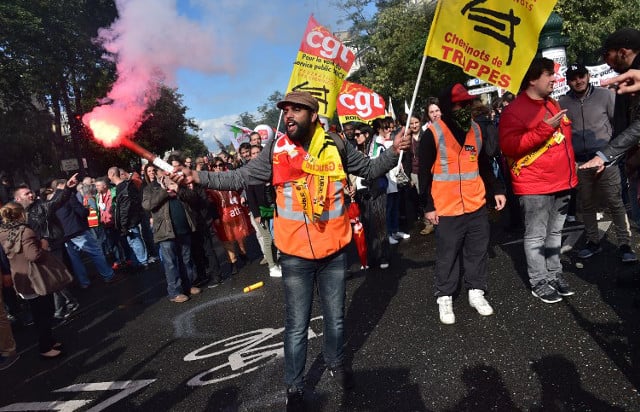- Five key ways Macron wants to change France's labour code
- 'France faces last chance to reform labour market, but must not become like UK and US'


The first day of major demonstrations against French President Emmanuel Macron's changes to France's enshrined labour code saw tens of thousands of protesters take to the streets on Tuesday.


